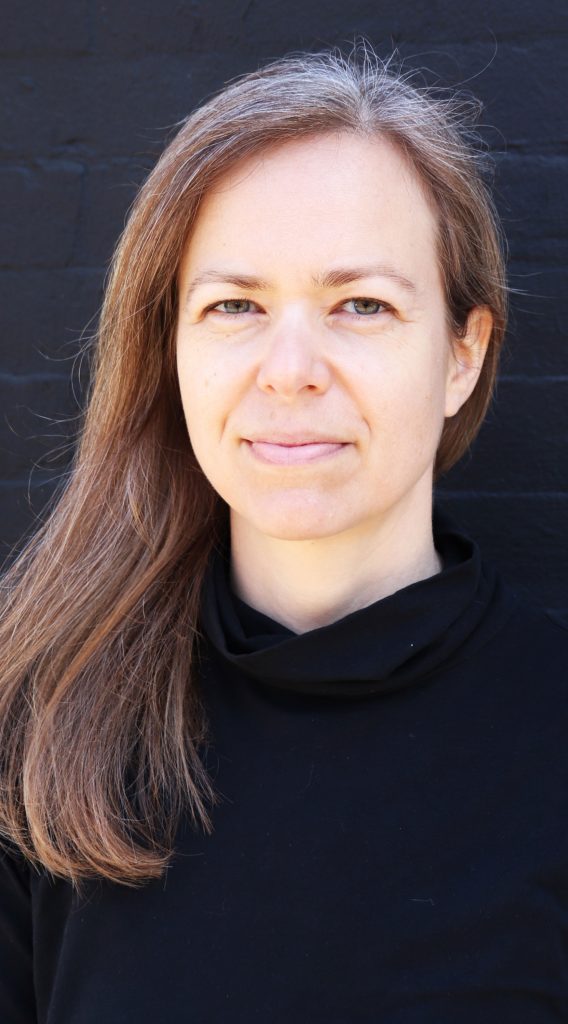
John Verzani, chair of the CUNY University Faculty Senate, has aired his concerns. (Credit: Dave Sanders)
This past spring, CUNY administration announced that it would introduce a new learning management system (LMS), Brightspace, to replace the often clunky and complicated Blackboard. It was slated to begin this Fall of 2023, with five campuses transferring over a semester at a time.
A CUNY announcement of the program states that the new system will include “a comprehensive learning management system that is modern and easy to use for faculty, staff and students.” It will also include “new capabilities to support teaching and learning across different modalities” and “support for growth in online learning.”
WORKLOAD ISSUES
However, faculty and staff are worried that the transition to the new system will be time-consuming and laborious, forcing unreasonable workloads onto PSC members. In some cases, these PSC members said, it might mean hours and hours of unpaid work.
For Sofya Aptekar, an associate professor of urban studies at the School of Labor and Urban Studies, the whole process of converting from Blackboard to Brightspace involves “a lot to move over.” It would mean added work, “doing a lot [of] this labor on top of normal course prep.” For adjuncts, she added, that might involve doing hours of conversion work in preparation for a class that could very well be suddenly cancelled at the beginning of the semester.
“For adjuncts it’s not paid, which is really unfair,” Aptekar said.
HEOs, many of whom will assist faculty in the switchover, are fearful that the process will be so arduous that it will force many to work beyond their 35-hour limit in the PSC-CUNY contract.
SYSTEM BENEFITS
John Verzani, the chair of the CUNY University Faculty Senate, sees benefits to the new system, and potential problems, citing a previous switchover at SUNY.
“While I expect disruption for some, hopefully it won’t be for too many, as the porting process proceeds. The process of selection allowed some faculty input, and the SUNY rollout gives CUNY some expertise to build on, should we choose,” said Verzani, a professor of mathematics at the College of Staten Island. “My biggest concern is the time frame, as the process started later than expected. [State approval came in June.] Blackboard is an essential tool for many faculty and students and used at a scale which can swamp vendors who are not ready, which I trust is not going to be the case. I have heard not all at SUNY are happy with the shift, and if the process is tougher than anticipated, there will be serious strain on the few local support people.”
Maria Plochocki, an adjunct assistant professor of writing composition at Baruch and York Colleges, noted that a major cause of concern has been that this decision was made without enough input from faculty and staff who will be impacted. What will happen if there are delays in implementation? Will data storage and retrieval from Blackboard be compromised? These are the questions her colleagues are asking.
“A major concern is support, or the administration’s failure to propose anything concrete, or that sounds remotely sufficient,” Plochocki said. “The transition will be quite time-consuming for some, especially those with more complex course content such as videos and podcasts.” She added that “no financial compensation, no release time” has been offered.
PROGRESS MADE

Sofya Aptekar
On the one hand, after hearing PSC concerns on the issue, CUNY administration officials told the union that more training on the transition will be offered and that it will slow down the transition process. But other concerns remain.
Plochocki added, “Functionality is a concern. Blackboard has classroom shells but also spaces for organizations such as clubs, even entire departments and programs,” noting that it wasn’t clear that the new system would offer the same kinds of technological advantages.
Members in higher education officer titles are also concerned about the amount of work they will need to do in order to facilitate the switch-over, said Rulisa Galloway-Perry, a PSC HEO chapter co-chair.
Some fear that it will be so burdensome that it will push HEOs to work well beyond the 35-hour week contractual limit.
STAFF CONCERNS
“HEOs are always concerned that they are forced at the last minute to learn, implement and troubleshoot new systems without any input on the effects that these new programs bring to their daily workload,” said Galloway-Perry, who is the academic advising director and senior co-curricular administrator in the Africana studies department at John Jay College. “HEOs are never given time for professional development in order to enhance their skills or be trained properly – meaning receiving at least a full day of training and given guides to refer to during the trial-and-error period of learning a new system. HEOs never have input on how these new programs change their workload, or if it is actually consciously creating another job function [or] a longer job description.”
Elisabeth Gareis, a professor of communication studies at Baruch College, explained that she and her colleagues have been frustrated by the clunky nature of the transition, which many fear has already interfered with their class preparation.
“Although support measures have been promised, they remain vague and don’t provide reassurance that the transition will go smoothly. We’ve been told that there will be tech support and tutorials, but the information is not specific enough, especially for faculty who teach partially or largely online,” she said. “The lack of concrete information on available support makes it difficult, if not impossible, for faculty to decide which courses and modality to teach. Faculty who depend on a learning management system for teaching hybrid or online must know what to expect and must have sufficient support and time to prepare their courses for the transition.”
FEAR ABOUNDS
This has all led to faculty and staff spending the beginning of the fall semester in a state of trepidation.
“In particular, staff are worried that already understaffed IT departments will be overwhelmed, adjunct faculty are concerned that they will have to do significant work without compensation and faculty with heavy LMS use are overwhelmed by the thought of not only having to learn the ins and outs of a new LMS but having to re-create course-specific how-to instructions (written and video) on their own time – work that cannot be outsourced,” Gareis said.
Worse, she added, the administration doesn’t appear to be taking these concerns seriously.
She said, “Calls for differentiated support, including release time and/or compensation, are left unanswered. And it is not clear who is ultimately accountable: the schools, the colleges, CUNY, Brightspace? The distinct feeling is that the cost for the transition will be paid by faculty and staff. The motto: ‘Open the floodgates and apologize later.’”
Gareis said that CUNY campus administrations at campuses going through the transition should give PSC members “an extra semester transition time, reassigned time or extra pay, one-on-one support for one-to-two weeks for proofing and fixing mistakes and help for re-creating materials.”
UNION MOBILIZING
The union remains active on this issue. Union officers are speaking to members about their concerns and have had multiple meetings with the CUNY administration in which those concerns were highlighted. The union will continue this effort, PSC leaders said, noting that CUNY took a step in the right direction by offering more training for the transition and admitting that the rollout has happened too quickly.
Aptekar also noted that the contract with Blackboard is a huge giveaway to a private business. “Given the size of CUNY, why can’t we have something that is developed by us and for us, instead of an outside company?” she asked, noting that many faculty members are worried about data cultivation.
“As a public institution, we should be working with other public institutions, creating public versions of this utility rather than enriching private corporations with public money.”
Verzani echoed this sentiment, saying “one concern raised during the acquisition process was whether the data collected by the vendor would be sold off in some form to commercial enterprises.”
He added, “It was a concern then and remains now.”
Published: September 27, 2023 | Last Modified: September 29, 2023

